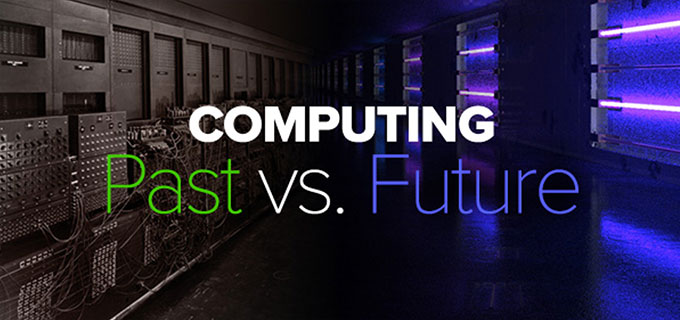
The Secret Untapped Market
Who thinks computers are easy to understand? I mean, really easy; so that all their functions and operations are second nature to you.
Now, I can’t see you all, but I would guess that there are very few hands in the air. Maybe none! I don’t have my hand up, and I’m supposed to be one of the, so-called, experts.
So, computers are not easy to understand. We all know that, of course. When we have to use them, we often fumble around and finish up using only those things that we are already familiar with. We might have been told that a particular program is capable of producing certain effects, but we don’t how to produce those effects, so we simply don’t use them, or even try.
Well, that’s not a good situation to be in, of course. But, do you know, it used to be so much easier. Yes – it’s true! I can remember computers in the 1970s and 80s. The programs were not very big and complex, because the hardware was not able to manage large and complex programs. So, you could pick up all of the functions of these simple programs very easily. But, as soon as the computers themselves began to get more powerful, which they did very rapidly, by the way, the software developers began to go to town on dramatically increasing the complexity of their creations. And pretty soon the average “Joe,” or “Jane” was lost.
And not long after that, most people were left behind completely. So, today we have a computer software market that consists of lots of people who are only using a small portion of the potential of the products that are being sold. But that market is probably only 50% or so of the total population, because the other 50% were left behind years ago and have no particular contact with computers at all.
With the 50 odd percent who do use computers, it is a fiercely competitive world with various computer industry giants throwing all sorts of software at us poor struggling users. And when the ExoBrain is launched, you are going to see a lot of blood in the water. The sharks are going to be thrashing around like crazy. But even though they don’t stand a chance, they have very deep pockets and will fight like crazy. But they will quickly see that their days are numbered, which will probably only increase the frenzy.
Now, I use the term “blood in the water” deliberately, because what we are looking at here is actually an amazing marketing opportunity. And it has been written about before. Many of you may have heard of the “Blue Ocean Strategy,” which is a series of books that have been published in the last 20 years or so. And here’s the point: of course we will compete with the existing sharks and we will win that one, but only after a lot of “red ocean” has been created. But it won’t be our blood in the water.
So, how about the rest of the marketing ocean that remains blue, because there is no-one there offering any viable computer solution? These are the people who don’t use computers at all today – and we’re talking several billion people here! Let me give you an example of how this works. It’s a real-world example, taken from the Blue Ocean Strategy book itself.
About 20 years ago, Yellow Tail wines were launched in the USA. They did not target the traditional wine market, which was full of snooty, pretentious, old-school traditional wine buffs, with all their own oh-so-fancy-sounding ideas of the best vintage, or the most exclusive wineries, or some other flamboyant and highly complex reason to get involved. No, these guys launched their brand at the people who did not drink wine at all. This was actually a larger market than the traditional wine market was at the time. These were the people who did drink alcohol with their meals, or just for enjoyment, but they drank beer, or spirits, and such – not wine.
And how did they target them? They made it simple! They made it easy to understand. You know, “Hey, wine is fun. You’ve got red and you’ve got white. And we don’t care about the ancestral heritage of the grapes, it just tastes good and you can drink it any time.” And there was a kangaroo on the label. Yes – it was an Australian wine company, of course.
Now, Yellow Tail went from zero to 50% total market share of the wine market in the US in just a few years. But, you see, it was not because of replacing the existing wine market – that stayed pretty much the same. No, they gained that total market share by finding a whole new market (people who did not drink wine) and dramatically expanded into that.
I’m sure you see the parallel here. Imagine showing someone (who does not use computers at all at present) that all they have to do is speak to the computer and it will do all the complicated stuff for them. You know, instead of having to know how to:
- Open a program
- Open a new document
- Set up a header from page 2 onwards
- Change the format on page 3 to 2-column
- Add a picture to the top right of page 5
- and so on…
All they would have to do is something like:
“I want to create a document. Put a page header, starting on page 2. The header is ‘Resume’.”
And then start to dictate it, later telling the computer: “Change page 3 to 2-column format,” and so on. All done with words. And all done without having to know anything about how it is done, or what buttons to push or what menus to navigate.
Can you see how that would be for people who have never even used a computer? A whole new world would open up for them. And that’s the “Secret Untapped Market” opening up. The existing software giants cannot ever get to these people – only we can. The ocean stays blue. No blood at all in this new area.
And the blood in the traditional market area will eventually dissipate, because everyone will be switching to the language-controlled ExoBrain; just like they switched from horse and buggy to automobile a hundred years ago.

